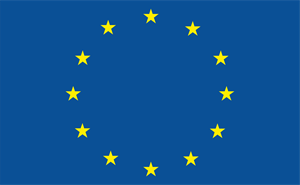
This project has received funding from the European Union’s Horizon 2020 research and innovation programme under the
Marie Sklodowska-Curie grant agreement No 836443
10 Feb 2020
Cities are now becoming the focus for CO2 emission reduction efforts worldwide and there is a growing need for establishing emission inventories, developing methodologies for improved CO2 monitoring and understanding of the multiple source, sink and storage processes inside the complex urban environment. Most of the current approaches for quantifying urban emissions focus on the anthropogenic sources (i.e. fossil fuel emissions), ignoring the biogenic processes (i.e. photosynthesis, respiration) that substantially modify the urban CO2 balance. Quantifying the biogenic CO2 flux in an urban area is scientifically challenging since urban vegetation and soils present complex physiological behaviour related to the local environment and the site-specific management. diFUME project aims to develop models for the spatiotemporal representation of the biogenic CO2 flux components – namely soil respiration, plant respiration and plant photosynthesis – using in-situ physiological measurements, meteorological observations and remote sensing.
The student will be involved in the field measurement campaign that will take place during April – September 2020, measuring in-situ photosynthesis and respiration rates of leaves and soils using portable gas analyser systems across the urban and peri-urban area of Basel. The student will be also required to process the measured data and extract key variables for the parameterization of photosynthesis and respiration models. Along with the measurements, the student will be responsible to review the related literature in order to compare and evaluate the field measurement results. Additionally, the student will be involved in processing remote sensing and meteorological data required for the models. The work conducted can support a BSc level thesis. Students with basic knowledge on plant ecosystem processes and skills in numerical and remote sensing data analysis will be preferred.
There is the possibility of a 6-month student assistantship (20%) with a follow-up BSc thesis related to that topic.
The interested students can apply for the internship by sending a CV and a short motivation letter to Dr. Stavros Stagakis (stavros.stagakis@unibas.ch) by the end of February 2020.
Find the call also in SiROP

This project has received funding from the European Union’s Horizon 2020 research and innovation programme under the
Marie Sklodowska-Curie grant agreement No 836443
No Code Website Builder
FOLLOW US!